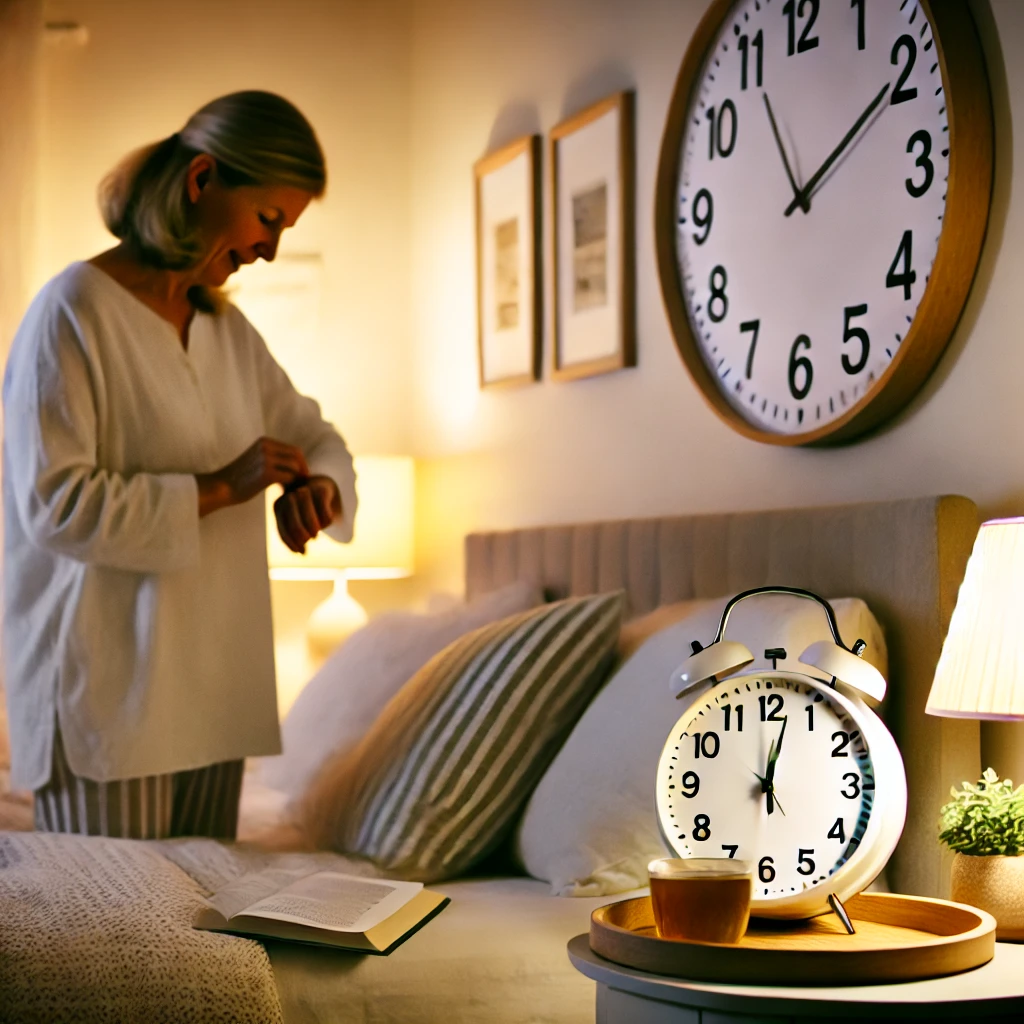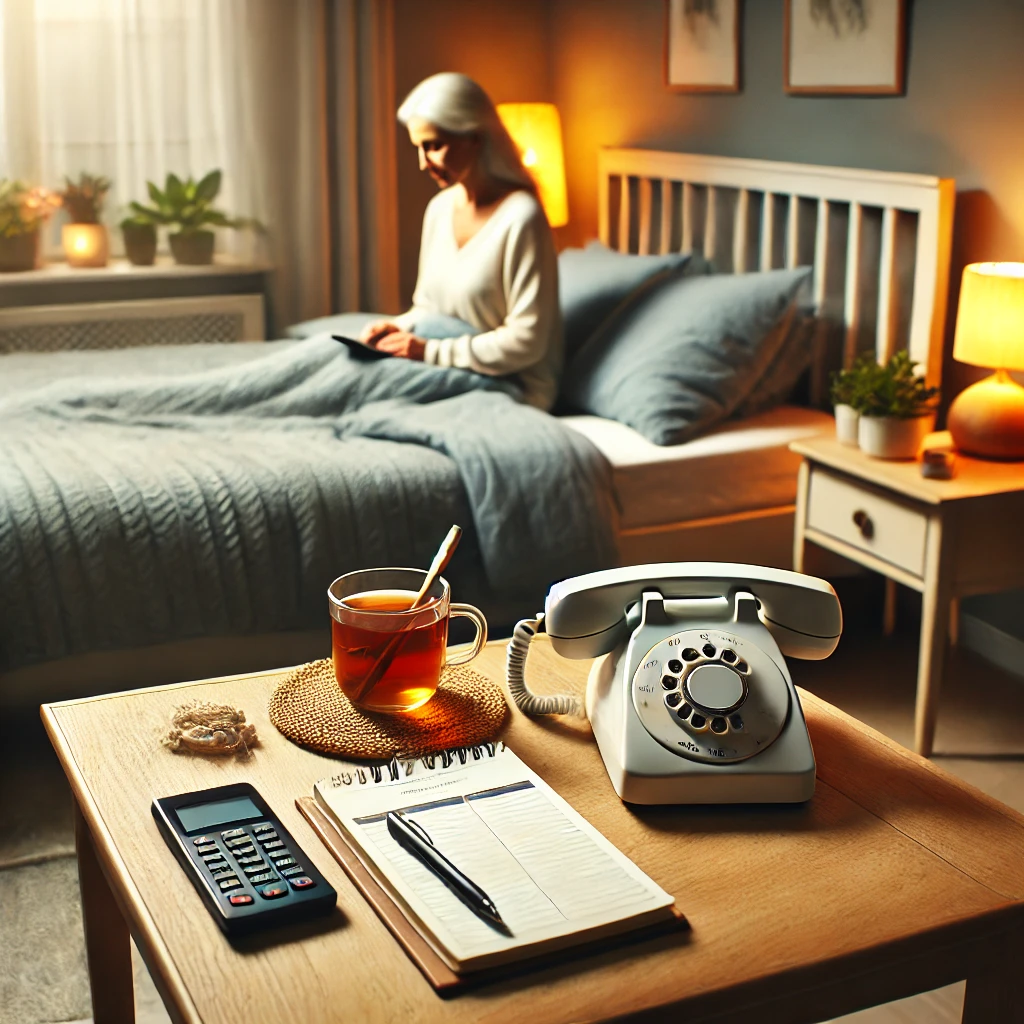Sleep Tips for Women Over 40: Unlocking Better Rest as You Age
This page may contains affiliate links. We may earn a commission for purchases made at no additional cost to you. The content on this website was created with the help of AI.
As we age, sleep can become a bit of a challenge, especially for women over 40. Hormonal shifts, lifestyle changes, and stress can make it harder to fall asleep, stay asleep, or wake up feeling rested. In this article, we’ll explore practical sleep tips specifically tailored to women over 40, helping you achieve a more restful, rejuvenating night’s sleep.
Why Sleep Changes as We Age
After 40, changes in hormone levels, like a decrease in estrogen and progesterone, can disrupt sleep patterns. These shifts may lead to sleep issues like insomnia, lighter sleep, and even night sweats or hot flashes. Additionally, stress and lifestyle factors such as juggling career, family, and personal goals can impact your sleep quality. Fortunately, by making a few adjustments, you can improve your chances of a good night’s sleep.
1. Create a Sleep-Optimized Bedroom Environment
Your sleep environment can make a big difference in the quality of your rest.

Temperature and Lighting
- Keep it Cool: Set your bedroom temperature between 60-67°F (15-20°C) for optimal sleep.
- Dim the Lights: Use blackout curtains to keep your room dark, or try a sleep mask. Reducing light exposure helps regulate melatonin, the hormone responsible for sleep.
Limit Noise and Distractions
- Soundproof Your Space: Use earplugs, a white noise machine, or soft music if outside noise disrupts your sleep.
- Keep Screens Away: Avoid screens (phones, tablets, or TVs) in the bedroom as the blue light from screens can interfere with melatonin production.
2. Establish a Consistent Sleep Schedule
One of the most effective ways to improve sleep is by maintaining a regular sleep schedule.

Go to Bed and Wake Up at the Same Time
Try to go to bed and wake up at the same time every day, even on weekends. A consistent sleep-wake cycle helps regulate your body’s internal clock, making it easier to fall asleep and wake up refreshed.
Create a Calming Evening Routine
Spend 30-60 minutes before bed unwinding with calming activities such as reading, gentle stretching, or taking a warm bath. Creating a bedtime ritual helps signal to your body that it’s time to relax and prepare for sleep.
3. Nutrition for Better Sleep
What you eat and drink can impact your sleep quality, especially as you age.

Reduce Stimulants
- Avoid Caffeine in the Afternoon: Caffeine stays in your system for hours, so try to avoid it after noon to prevent it from interfering with your nighttime sleep.
- Limit Alcohol Before Bed: Alcohol can disrupt your sleep cycles, leading to poorer quality sleep.
Include Sleep-Promoting Foods
- Try Foods with Tryptophan: Foods like turkey, nuts, and seeds contain tryptophan, an amino acid that helps produce serotonin, which can help improve sleep.
- Incorporate Magnesium-Rich Foods: Magnesium supports relaxation and can help ease tension. Try adding leafy greens, almonds, or bananas to your diet.
4. Manage Hormonal Fluctuations
Hormonal changes can have a big impact on sleep quality for women over 40, particularly around perimenopause and menopause.

Consider Natural Supplements
- Melatonin: Melatonin supplements can be effective for some women. Start with a low dose and consult a healthcare professional before use.
- Herbal Options: Natural remedies like valerian root or chamomile tea can promote relaxation and may help you fall asleep faster.
Stay Physically Active
Regular exercise, particularly earlier in the day, can improve sleep quality. Activities like yoga, walking, or strength training not only help balance hormones but also reduce stress.
5. Practice Stress-Reduction Techniques
Stress is a common sleep disruptor, especially for women juggling multiple responsibilities.

Meditation and Mindfulness
- Practice Deep Breathing: Simple deep-breathing exercises can quickly reduce stress and help you relax before bed.
- Try Meditation or Yoga: Incorporating a mindfulness practice into your daily routine can calm your mind and improve your ability to fall asleep peacefully.
Journaling Before Bed
- Unload Your Thoughts: Spend a few minutes before bed jotting down any lingering thoughts, to-do lists, or worries. This “brain dump” can help prevent racing thoughts from keeping you up at night.
6. Know When to Seek Professional Help
If sleep issues persist despite trying these tips, it may be time to consult a healthcare provider.

Identify Underlying Sleep Disorders
- Consult a Sleep Specialist: Conditions like sleep apnea, insomnia, or restless leg syndrome are common and treatable. A sleep specialist can offer solutions tailored to your specific needs.
Consider Hormonal Support Options
- Talk to Your Doctor: For some women, hormone replacement therapy (HRT) can help alleviate sleep disturbances caused by menopause. Discuss options with your doctor to see if this is right for you.

Final Thoughts
Sleep is essential for overall well-being, especially for women over 40 facing unique sleep challenges. By creating a calming environment, maintaining a consistent schedule, supporting your body through diet and exercise, and managing stress, you can improve your sleep quality and wake up feeling refreshed. Remember, small changes can lead to big improvements in your sleep and your daily life.
Make sleep a priority and embrace these changes. After all, good sleep is a cornerstone of feeling fabulous at any age!





